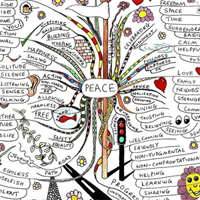Het arrangement Theme Being in love - tto123 is gemaakt met Wikiwijs van Kennisnet. Wikiwijs is hét onderwijsplatform waar je leermiddelen zoekt, maakt en deelt.
- Auteur
- Laatst gewijzigd
- 11-05-2025 09:40:56
- Licentie
-
Dit lesmateriaal is gepubliceerd onder de Creative Commons Naamsvermelding-GelijkDelen 4.0 Internationale licentie. Dit houdt in dat je onder de voorwaarde van naamsvermelding en publicatie onder dezelfde licentie vrij bent om:
- het werk te delen - te kopiëren, te verspreiden en door te geven via elk medium of bestandsformaat
- het werk te bewerken - te remixen, te veranderen en afgeleide werken te maken
- voor alle doeleinden, inclusief commerciële doeleinden.
Meer informatie over de CC Naamsvermelding-GelijkDelen 4.0 Internationale licentie.
Aanvullende informatie over dit lesmateriaal
Van dit lesmateriaal is de volgende aanvullende informatie beschikbaar:
- Toelichting
- Dit thema valt onder de arrangeerbare leerlijn van de Stercollectie voor Engels voor tweetalig onderwijs, leerjaar 1, 2 en 3. Dit is thema 2 'Being in love'. In deze les gaat het over verliefd zijn; wat is het, hoe voelt het en wat doe je als je verliefd bent? Het thema omvat de volgende onderwerpen: Infatuation, Falling in love, Trouble in paradise en My funny valentine. De grammaticaopdrachten gaan over 'future tenses' en continuous forms.
- Leerniveau
- VWO 2; HAVO 1; VWO 1; HAVO 3; VWO 3; HAVO 2;
- Leerinhoud en doelen
- Engels;
- Eindgebruiker
- leerling/student
- Moeilijkheidsgraad
- gemiddeld
- Studiebelasting
- 9 uur 30 minuten
- Trefwoorden
- arrangeerbaar, being in love, engels, falling in love, future tense and continuous forms, infatuation, my funny valentine, stercollectie, trouble in paradise, tto123
Gebruikte Wikiwijs Arrangementen
VO-content Engels. (2020).
Thema Being in love- hv3

 Welcome to the next theme of English
Welcome to the next theme of English


 In this theme you will focus on the following 'can do' statements.
In this theme you will focus on the following 'can do' statements.
 Below are the four lessons that belong to this topic.
Below are the four lessons that belong to this topic.

 Friendship
Friendship
 Best friends or lovers?
Best friends or lovers? Guide to dating
Guide to dating
 At the end of each period you answered evaluation questions. Use these answers to answer the following questions:
At the end of each period you answered evaluation questions. Use these answers to answer the following questions: